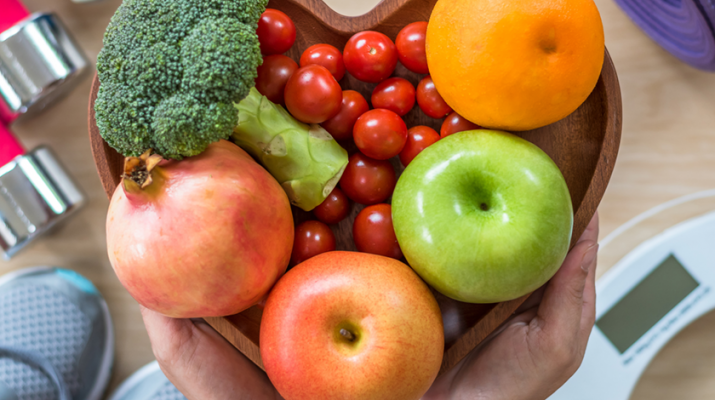By Deborah Jeanne Sergeant
While the phrase “super foods” may create buzz around fad foods, it’s true that eating a healthful diet can help support healthy aging. Area experts share their advice for eating right.
Here’s what they say:
• “Fiber is definitely an issue. A lot of my younger and older clients aren’t getting fiber-rich foods, including whole grains, fruits, vegetables, nuts and seeds. It’s a contributing factor to a lot of health conditions we’re having. Increasing fiber can resolve a lot of those issues.
• According to the information found at this vascular specialist online website, as we age, we tend to forget about hydration. Especially if you add in more fiber, you have to increase hydration. They go in combination. You can add cucumber slices, watermelon or strawberries to water. That can help you to consume more. Drink non-caffeinated teas. Watch for sugar. That can lead to other health conditions. Hydration is beneficial to support brain function, regulate body temperature, relieve constipation issues, reduce risk of headaches, and rid the body of toxins. it also helps reduce dry mouth.
• “Eat seafood containing omega-3 twice a week. Some of the highest are salmon, tuna and sardines. These foods are anti-inflammatory. In recent studies, they’ve been shown to reduce onset of dementia and help with joint lubrication. In the American diet, we have way more omega-6 source, like vegetable oil and grain products. It’s essential but we get too many and they’re pro-inflammatory. You need omega-3 to offset it. Canned tuna and salmon in water can be a big cost saver, as can frozen fish. Flax seed is also a source of omega-3, but the fish sources are most potent. Flax seed should be ground. Chia seeds are also a good source.
Kelly Springer, registered dietitian and owner Kelly’s Choice, LLC, Skaneateles
• “Avoid foods that are fried or have a lot of oil, as that adds unhealthy fat and oils.
• “Eat healthy carbs that are plant-based and avoid things that are sugar based or made of flour.
• “Keep an eye on the size of the portion. A lot of fruits in the super market are really big and may be more than one serving. In general, eat the fruit instead of drinking the juice, which can be a big sugar load.
• “Eat food as close as to its natural form as possible.
• “Avoid beverages high in sugar.”
Sharon Brangman, professor of medicine and head of the Geriatric Department at SUNY Upstate Medical University
“If you can convince places like McDonald’s and Burger King to make healthful snacks available, then we will see there will be movement toward healthy eating.
“People need more fruits and vegetables.”
“We need to eat more of the foods that are natural and not processed. These will keep us healthier as we age.”
Physician Az Tahir, High Point Wellness, Syracuse
• “As we age, absorption is different as is the sense of smell and taste. Over the age of 50, our ability to absorb B-12 decreases with decreased stomach acid. As we take these antacid medications, the problem can worsen. B-12 is in anything that comes from an animal, like eggs, chicken, beef. Definitely look at signs of deficiency, like tingling in the hands and feet. As we get older, that can be related to nerve and arthritis issues. Primary care may not pick up on this but it’s really a B-12 deficiency. It can also cause cognitive issues, like the brain isn’t speaking to the arm to move it the right way. The doctor doesn’t usually include B-12 in a panel.
• “Increase calcium and vitamin D. Good sources include fortified milk. As we age or in general, lactose can be an issue. Getting calcium from cow’s milk can cause digestive problems. Plant-based milk can be fortified, and juice like orange juice. Broccoli is also a source.
• “Folic acid is another one that’s usually fortified in a lot of foods.
• “We have a decreased sense of thirst and smell; it’s blunted as we age. You might not feel thirsty but that doesn’t meet you shouldn’t keep fluids in front of you all day.
• “You might have a decreased sense of taste where you’re not as interested in food. Herbs and spices can help you keep interested in foods.
ª “If you have dental issues as you age, foods hurt sometimes. Hard, raw vegetables and foods with skin can be hard to eat. Try soups and stews made with a lot of healthful vegetables. The nutrients are all there for you.”
Evelyn Mariani, registered dietitian, the office of William A. Graber, MD, PC, Utica and Syracuse.

